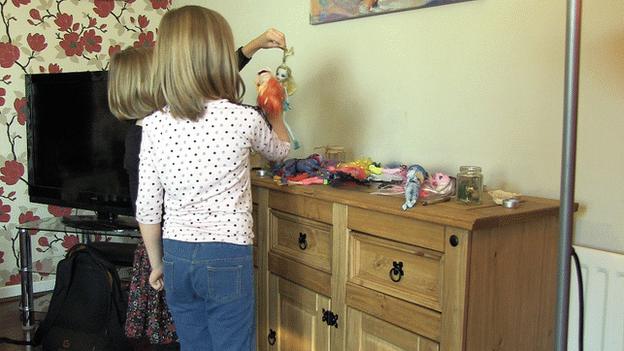Child gender identity referrals show huge rise in six years
- Published
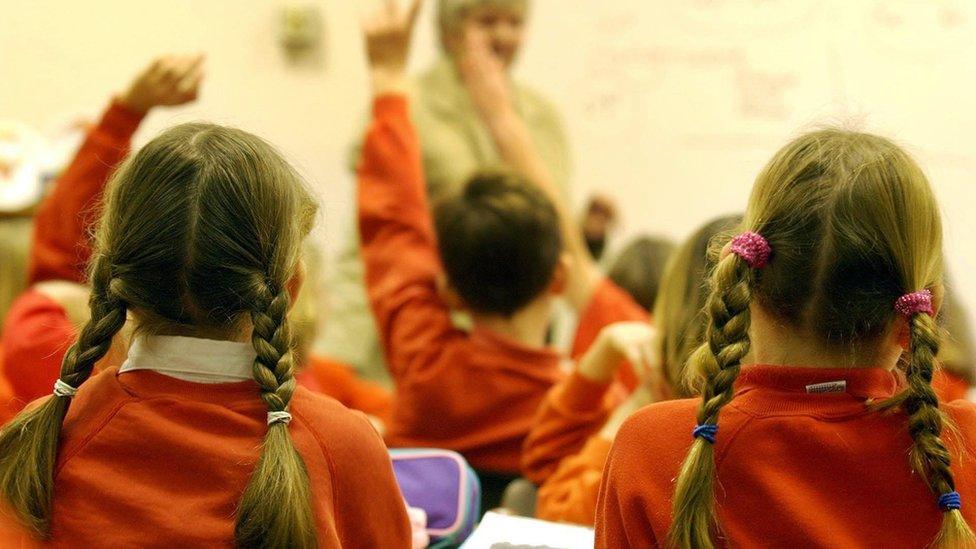
The number of children referred to the NHS with gender identity issues has increased significantly in recent years, according to figures obtained by the BBC.
The details were revealed after a five-year-old Nottinghamshire boy recently returned to the classroom as a girl.
The Gender Identity Development Service (GIDS) said 969 under-18s have been referred in the UK in 2015-16, including nearly 200 aged 12 or under.
This compares to just 94 in 2009-2010.
*2015-16 figures, available for April-Dec only
The statistics also showed one three-year old and three four-year-olds were referred to GIDS since April last year.
In the Nottinghamshire case, letters were sent to classmates and parents at the start of the current term explaining the five-year-old's wishes to be treated as a girl.
Her family told the Nottingham Post the decision was not taken lightly and they had received support., external
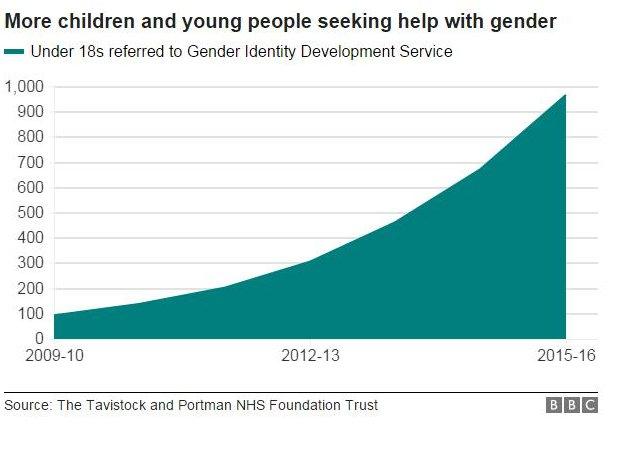
Nottinghamshire County Council admitted transgender issues were a new area for many schools but said it "supported head teachers on a range of equality issues".
Colin Pettigrew, the authority's director for children, families and cultural services, said: "Transgender is a characteristic protected by law and therefore head teachers across England continue to, and are required to, agree a clear plan to support the needs of transgender children and young people."
Updates on this story and more from Nottinghamshire
GIDS, based in north London, is the NHS's dedicated gender identity development service for children and takes referrals from GPs, paediatricians, mental health services and schools across the country.
Its director, Polly Carmichael, said in recent years more younger children were making gender transitions and there was no "right or wrong approach", with many families reporting their child was happier living in another gender.
However, she said research published in the Netherlands suggested that "for some young people who make an early social transition it may be difficult to de-transition if their gender identity develops in another direction".
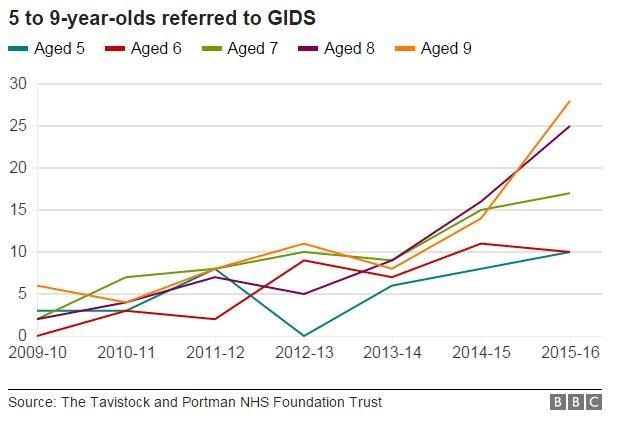
In terms of the general increase in referrals, GIDS said there could be a number of reasons, but increased awareness and acceptance of gender issues - particularly via the media and social networks - was a likely factor.
Whatever age a child is referred, no physical changes can be made until the young person is in puberty, it said.
Bernard Reed from the Gender Identity Research and Education Society (GIRES) - a charity which works to improve the lives of gender non-conforming people - said many young people still did not feel confident speaking about gender issues.
"There are several hundred cases each year and they are quite often referred for medical support" he said.
"But because society is often not supportive in such cases, usually these young people do not seek publicity".
- Published20 January 2016
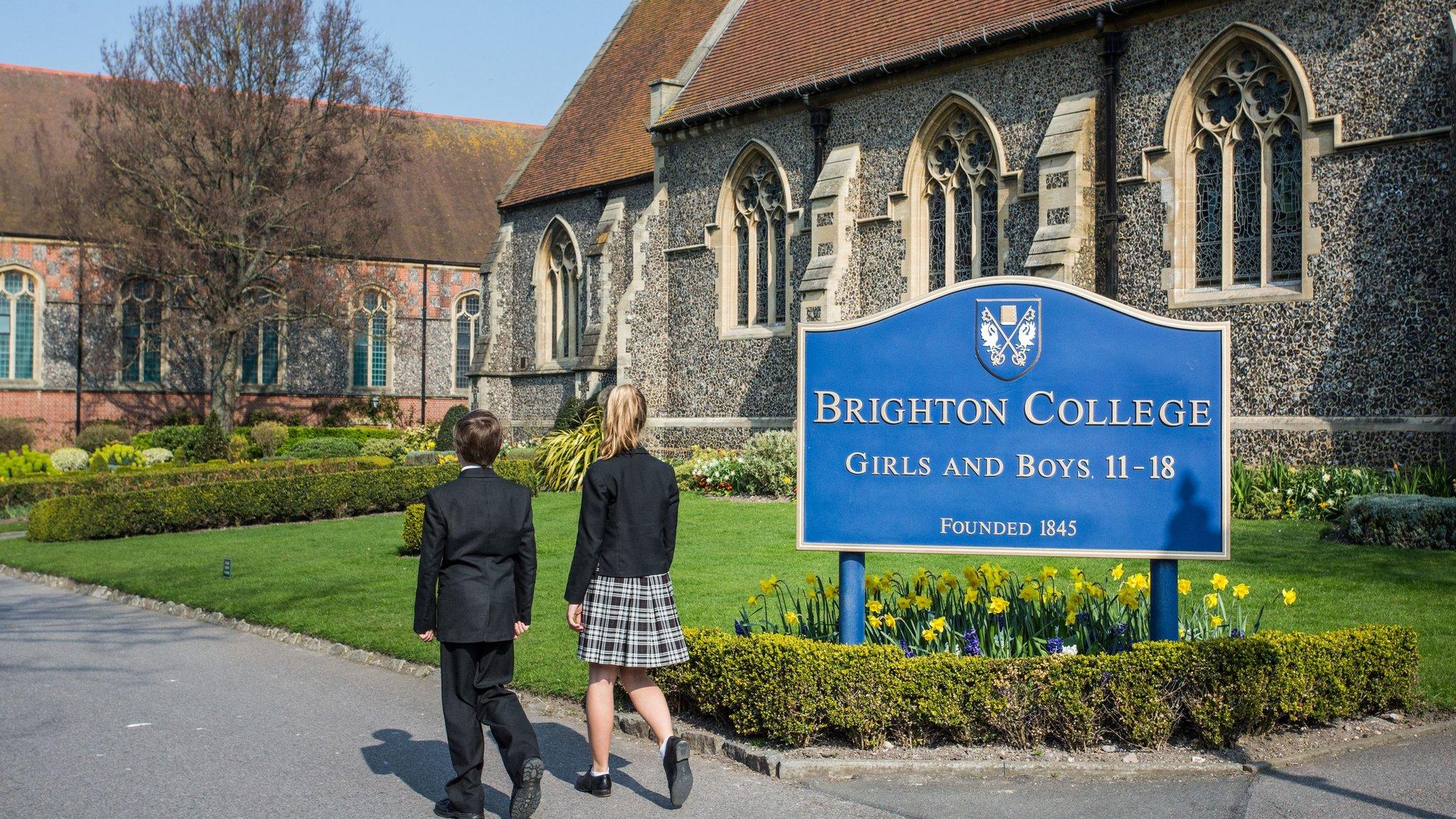
- Published20 November 2015

- Published29 June 2015
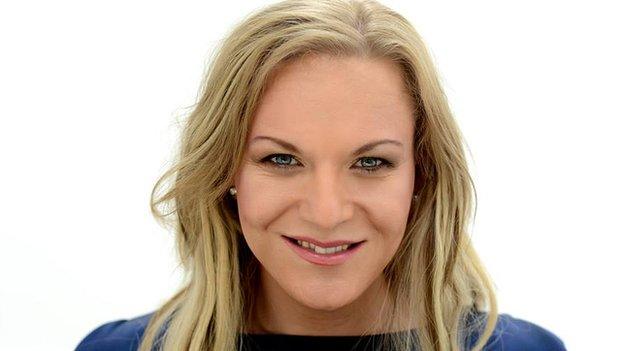
- Published7 April 2015
